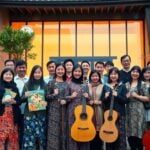The grant writing process is a multifaceted journey that requires a blend of creativity, strategic thinking, and meticulous attention to detail. At its core, grant writing involves articulating a project or program’s goals and objectives in a manner that resonates with potential funders. This process begins with a thorough understanding of the grant’s purpose, the funding agency’s priorities, and the specific requirements outlined in the grant application.
Writers must immerse themselves in the guidelines provided by the funding organization, as these documents often contain critical information about eligibility, submission deadlines, and evaluation criteria. A successful grant proposal is not merely a request for funds; it is a persuasive narrative that conveys the significance of the project and its alignment with the funder’s mission. Moreover, the grant writing process is inherently iterative.
It often involves drafting, revising, and refining proposals based on feedback from colleagues or mentors. This collaborative aspect can enhance the quality of the proposal, as diverse perspectives can illuminate potential weaknesses or areas for improvement. Additionally, understanding the audience is crucial; grant writers must tailor their language and approach to resonate with the specific interests and values of the funding organization.
By engaging in this comprehensive process, writers can develop proposals that not only meet technical requirements but also tell a compelling story that captures the funder’s attention and support.
Key Takeaways
- The grant writing process involves researching, planning, writing, and submitting proposals to secure funding for a specific project or organization.
- Identifying funding opportunities requires thorough research of potential grantors, understanding their priorities, and aligning them with the needs of the project or organization.
- Crafting a compelling proposal involves clearly articulating the project’s goals, objectives, methodology, and expected outcomes in a persuasive and well-organized manner.
- Demonstrating need and impact requires providing evidence of the project’s relevance, potential impact, and the community or population it will serve.
- Budgeting and financial planning involves accurately estimating the costs of the project, justifying the expenses, and aligning them with the grantor’s guidelines and requirements.
- Submitting a strong application requires attention to detail, adherence to the grantor’s guidelines, and ensuring that all necessary documents and information are included in the submission.
Identifying Funding Opportunities
Identifying suitable funding opportunities is a critical first step in the grant writing process. This task requires a proactive approach, as there are myriad funding sources available, ranging from government agencies and private foundations to corporate sponsors and nonprofit organizations. Each funding source has its own set of priorities, eligibility criteria, and application processes, making it essential for grant writers to conduct thorough research.
Utilizing online databases, attending workshops, and networking within relevant sectors can significantly enhance one’s ability to discover potential funding opportunities. Additionally, subscribing to newsletters or joining professional associations can provide valuable insights into upcoming grants and trends in funding. Once potential funding sources have been identified, it is important to evaluate them against the project’s goals and objectives.
Not all funding opportunities will align perfectly with a project’s mission; therefore, careful consideration must be given to how well a proposal fits within the funder’s strategic framework. This alignment is crucial not only for increasing the chances of securing funding but also for ensuring that the project can be executed effectively within the parameters set by the funder. By taking the time to identify and assess funding opportunities thoughtfully, grant writers can position themselves for success and create proposals that resonate with potential funders.
Crafting a Compelling Proposal

Crafting a compelling proposal is an art form that combines clarity, persuasion, and strategic storytelling. A well-structured proposal should begin with an engaging executive summary that succinctly outlines the project’s purpose, significance, and anticipated outcomes. This section serves as a hook to draw in reviewers and should be crafted with care to ensure it captures their interest immediately.
Following the executive summary, the proposal should delve into a detailed description of the project, including its goals, methodology, and timeline. Each component must be articulated clearly and logically to guide reviewers through the narrative seamlessly. In addition to presenting information clearly, a compelling proposal must also evoke an emotional response from its audience.
This can be achieved by incorporating personal stories or testimonials that illustrate the project’s potential impact on individuals or communities. By humanizing the proposal, writers can create a connection between the funder and the project, making it more relatable and memorable. Furthermore, integrating data and research to support claims enhances credibility and demonstrates a thorough understanding of the issue at hand.
Ultimately, a successful proposal balances factual information with compelling narratives to create a persuasive case for funding.
Demonstrating Need and Impact
Demonstrating need and impact is a pivotal aspect of any grant proposal, as funders are often keenly interested in understanding how their investment will address specific challenges or contribute to positive change. To effectively convey need, grant writers must present compelling evidence that highlights the urgency of the issue being addressed. This may involve utilizing statistics, case studies, or testimonials that illustrate the problem’s scope and significance.
By painting a vivid picture of the current situation, writers can underscore why their project is not only relevant but also necessary for driving meaningful change. Equally important is articulating the anticipated impact of the proposed project. Funders want to know how their support will translate into tangible outcomes and benefits for individuals or communities.
This requires grant writers to outline clear objectives and measurable indicators of success. By establishing a framework for evaluation that includes both qualitative and quantitative measures, writers can demonstrate their commitment to accountability and transparency. Furthermore, discussing potential long-term effects can enhance a proposal’s appeal by illustrating how the project will contribute to sustainable change beyond its immediate scope.
Budgeting and Financial Planning
Budgeting and financial planning are integral components of grant writing that require careful consideration and precision. A well-constructed budget not only outlines how funds will be allocated but also reflects an understanding of the project’s financial needs and sustainability. Grant writers must provide detailed line items that account for all expenses associated with the project, including personnel costs, materials, travel expenses, and indirect costs.
Transparency in budgeting is essential; funders appreciate clarity regarding how their contributions will be utilized and expect justification for each expense listed. In addition to presenting a clear budget, grant writers should also consider including a narrative that explains the financial plan’s rationale. This narrative can provide context for budgetary decisions and demonstrate how they align with project goals.
Furthermore, discussing potential sources of matching funds or in-kind contributions can strengthen a proposal by showcasing broader community support for the initiative. By approaching budgeting with thoroughness and foresight, grant writers can instill confidence in funders regarding their ability to manage resources effectively while achieving project objectives.
Submitting a Strong Application

Final Review and Preparation
Submitting a strong application is often the culmination of extensive research, planning, and collaboration throughout the grant writing process. Before submission, it is crucial to conduct a final review of all components of the proposal to ensure coherence and adherence to guidelines set forth by the funding agency. This includes checking for compliance with formatting requirements, word limits, and any specific documentation requested by the funder.
Importance of Review and Feedback
A meticulous review process can help identify any inconsistencies or errors that may detract from the proposal’s overall quality. Additionally, seeking feedback from colleagues or mentors before submission can provide valuable insights that enhance the proposal’s strength. Constructive criticism can illuminate areas that may require further clarification or improvement, ultimately leading to a more polished final product.
Submission and Follow-up
Once all revisions have been made and the application is deemed ready for submission, it is essential to follow up on any required documentation or supplementary materials that may need to accompany the proposal. By approaching this final stage with diligence and care, grant writers can maximize their chances of success in securing funding for their projects while demonstrating professionalism and commitment to their cause.
For students seeking specific insights into securing funding for medical research, the article titled “Applications Open for Medical Student Research Grant (US)” offers valuable information. This resource is particularly beneficial for those in the medical field looking to gain financial support for their research projects. It provides details on eligibility, application processes, and the types of research projects considered. You can explore this article further by visiting Applications Open for Medical Student Research Grant (US) to enhance your understanding and prepare a compelling grant application.
FAQs
What is grant writing?
Grant writing is the process of applying for funding from organizations, government agencies, or foundations to support a specific project or program. It involves writing a proposal that outlines the project, its goals, and the budget, in order to convince the funder to provide financial support.
Why is grant writing important for students?
Grant writing is important for students because it provides an opportunity to secure funding for research projects, community initiatives, or educational programs. It can also help students gain valuable experience in project management, budgeting, and communication skills.
What are some tips for winning funding through grant writing?
Some tips for winning funding through grant writing include: clearly defining the project and its goals, conducting thorough research on potential funders, tailoring the proposal to the specific funder’s priorities, and providing a detailed and realistic budget.
What are some common mistakes to avoid in grant writing?
Common mistakes to avoid in grant writing include: not following the funder’s guidelines, submitting a generic proposal that is not tailored to the funder’s priorities, and not providing enough detail or evidence to support the project’s feasibility and impact.
Where can students find resources and support for grant writing?
Students can find resources and support for grant writing through their university’s research office, library, or career services department. There are also online resources, workshops, and webinars available through organizations such as the Foundation Center and GrantSpace.


























